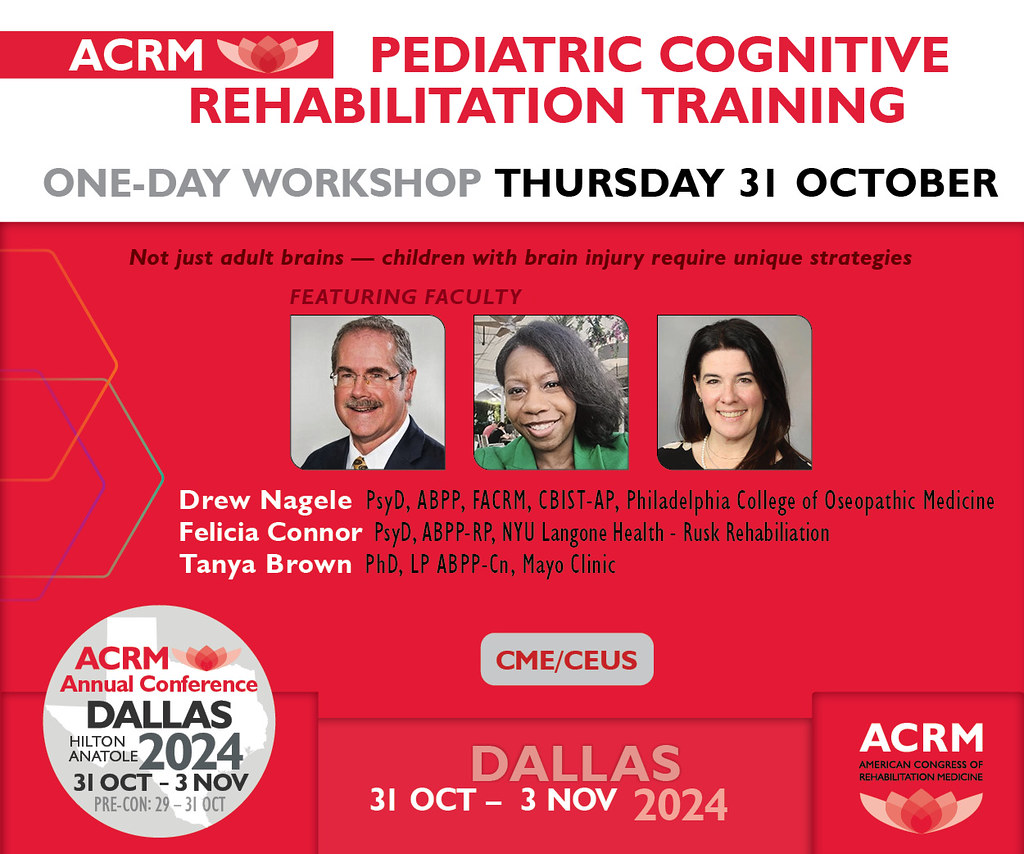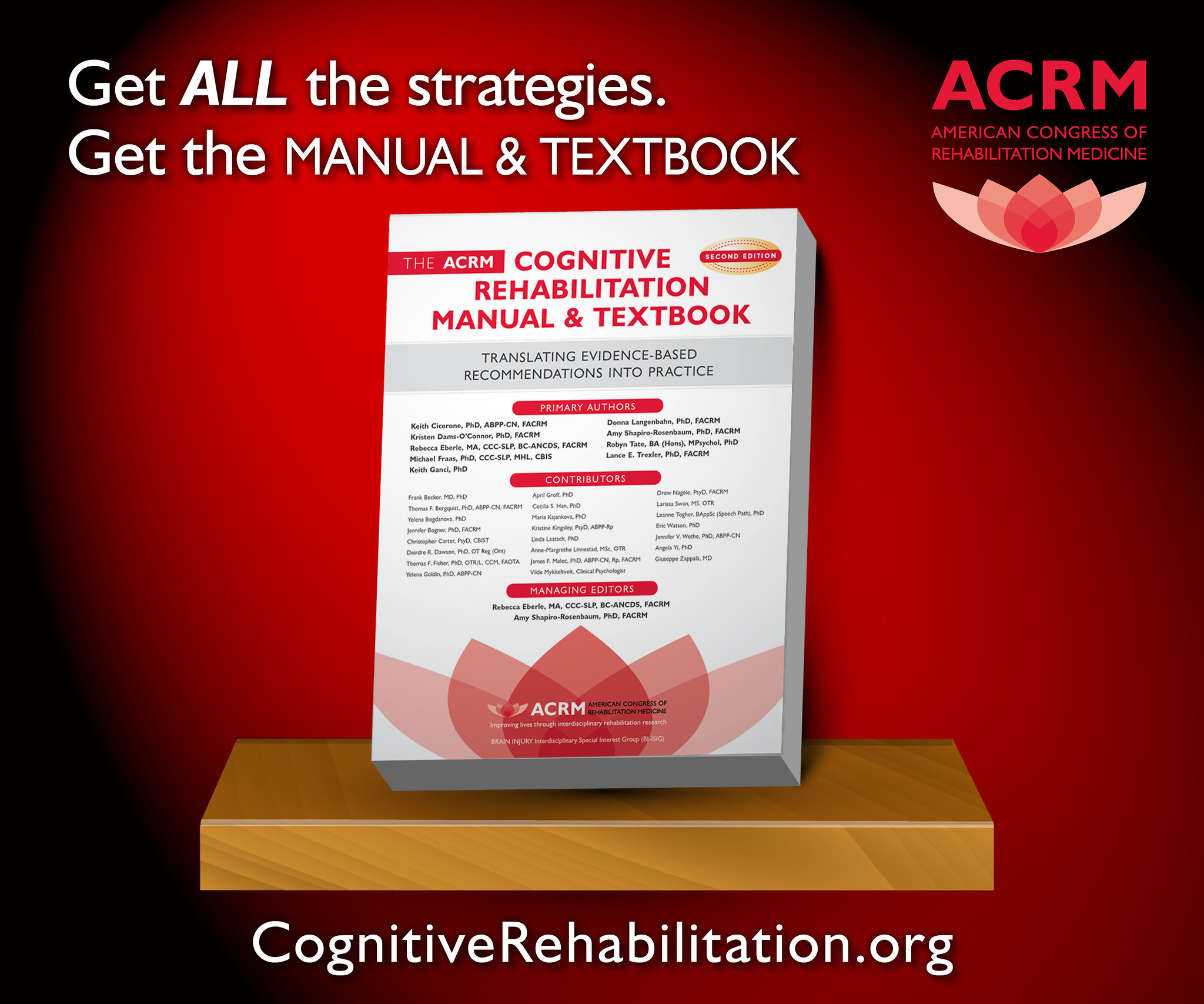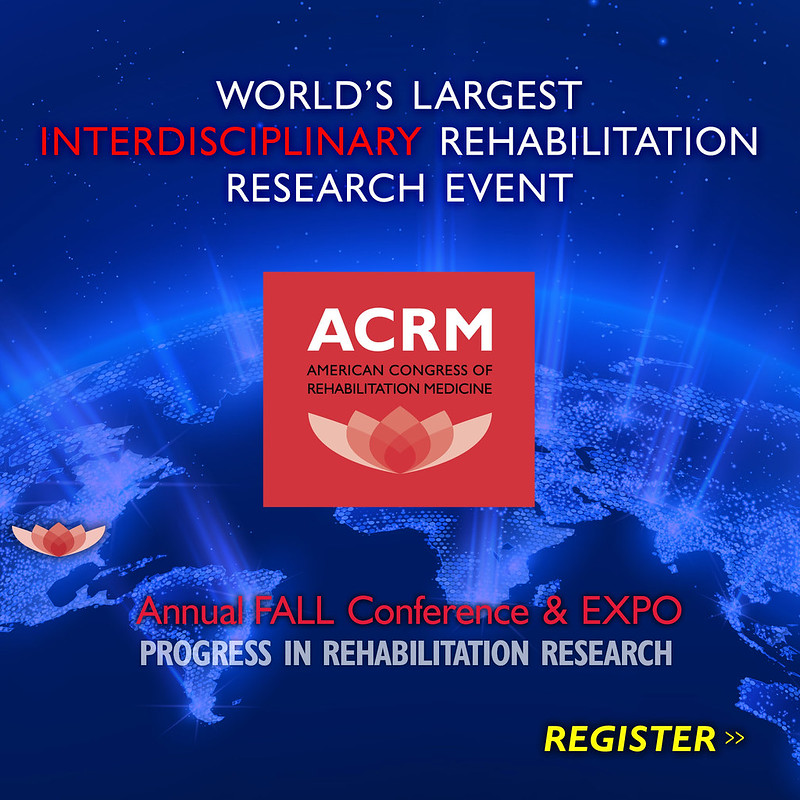 |
Michael L. Jones, PhD, FACRM Ex-Officio Member, ACRM Board of Governors Annual Conference Program Committee Chair Shepherd Center mike_jones@shepherd.org |
Mike Jones is vice president for research and technology at Shepherd Center (www.shepherd.org) and founding director of the Center’s Virginia C. Crawford Research Institute. He is also co-director of the Rehabilitation Engineering Research Center on Wireless Technologies, a joint research program of Georgia Tech and Shepherd Center.
Mike’s professional interests are eclectic with a broad interest on design and management of environments, programs and services that promote independent living and full inclusion of people with disabilities. His research interests include applications of universal design, information and communication technology, and behavior management strategies to promote health, wellness, and community participation.
Mike received his PhD in child psychology (with an emphasis in applied behavior analysis) from the University of Kansas, where he also served as associate director of the Research and Training Center on Independent Living (RTC/IL) from 1983 to 1988. Mike’s work with RTC/IL included the media project, which culminated in publication of the Guidelines for Writing and Reporting about People with Disabilities.
This brochure offers preferred language, style, and appropriate portrayals of people with disabilities. Now in its 6th edition, the Guidelines reflect input and endorsements from over 90 national disability groups and have been adopted by the Associated Press Stylebook, AAAS, National Rehabilitation Association, and the APA Publications Manual.
Prior to joining Shepherd Center in 1996, Mike was executive director of the Center for Universal Design and associate professor of design and technology at North Carolina State University. In 1994, Mike and industrial designer Jim Mueller led a team of architects, designers, engineers and accessibility advocates to establish the Principles of Universal Design to guide a wide range of design disciplines including environments, products, and communications. The Principles have been translated into at least 10 languages and adopted globally as the basis for promoting the adoption of universal design.












